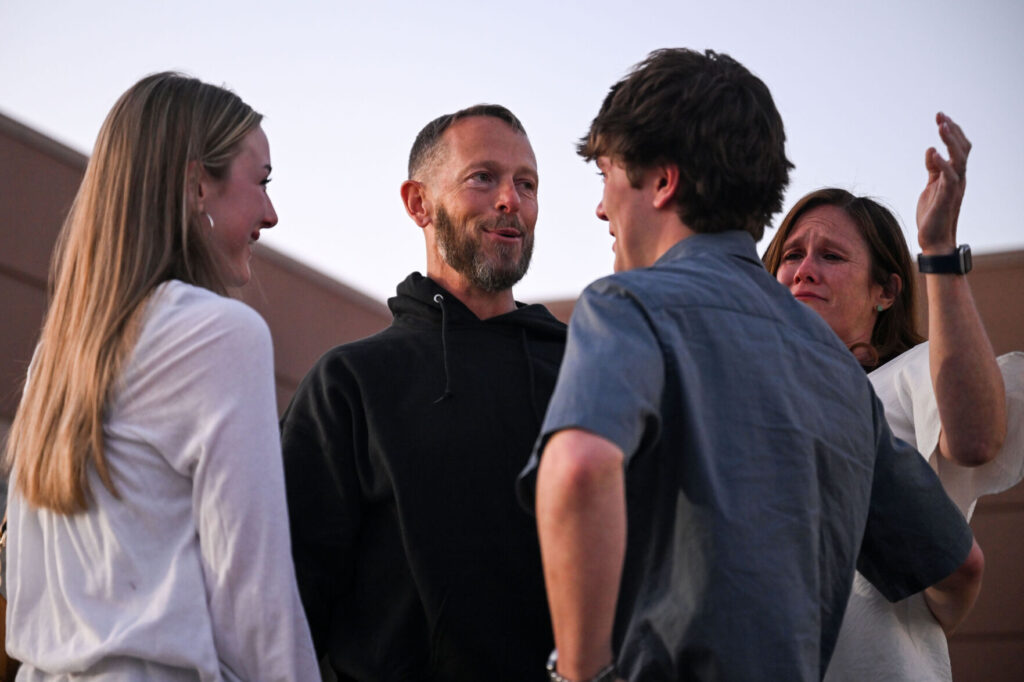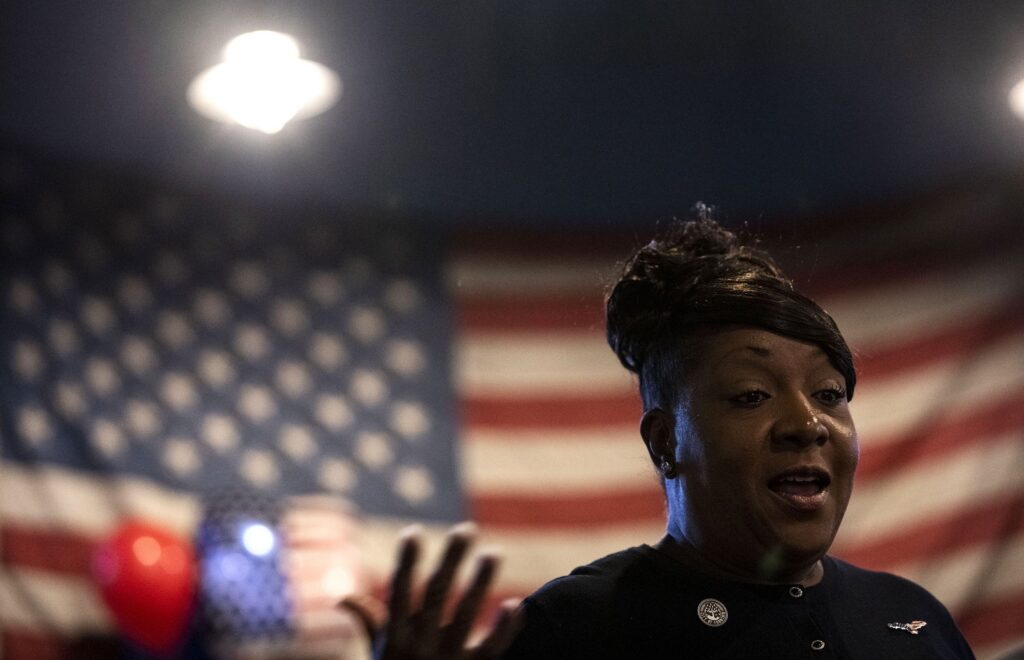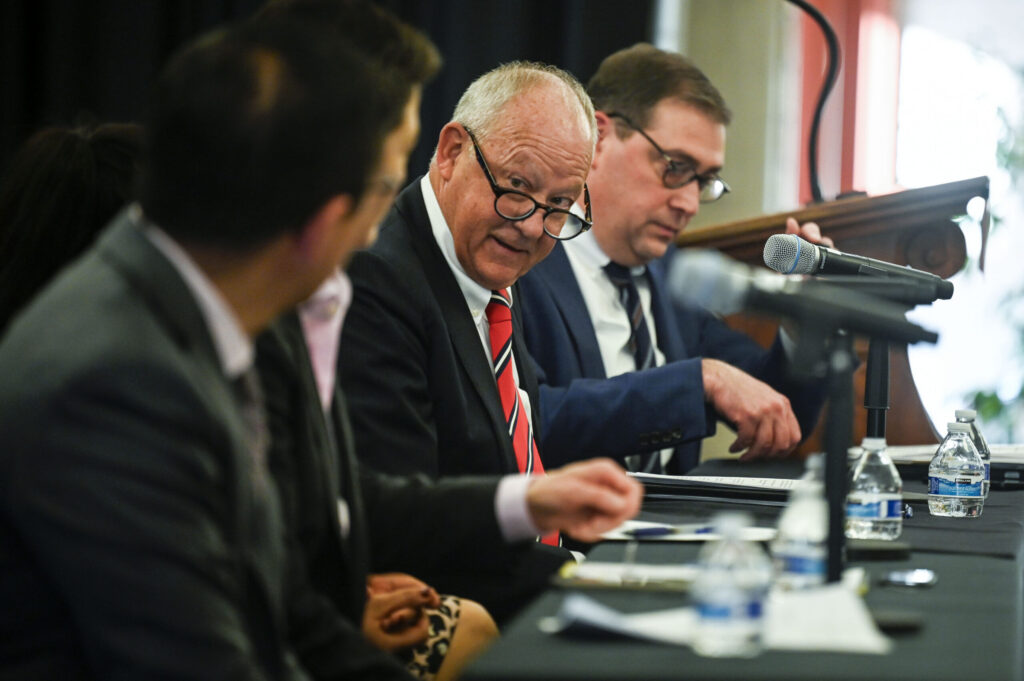Appeals court upholds dismissal of Black juror for negative experiences with police
Colorado’s second-highest court agreed earlier this month that an Arapahoe County prosecutor did not remove a Black woman from a jury because of her race, even though she had explicitly attributed her prior negative interactions with police to “the color of my skin.”
Under longstanding U.S. Supreme Court precedent, intentional race-based discrimination in jury selection is unconstitutional. Normally, parties may exercise “peremptory strikes” of jurors without citing a reason. But when a prosecutor tries to dismiss a juror of color, the defendant may raise a “Batson challenge,” named after the Supreme Court’s Batson v. Kentucky decision. Such a challenge forces the prosecutor to justify the removal with a “race-neutral” reason.
The challenge proceeds in three steps. First, the defense must state a plausible case that a juror is being removed on account of their race. Second, the prosecution must offer a race-neutral explanation. Finally, the trial judge analyzes whether discrimination is likely happening.
Adrien Jabrie Ramsey stood trial in 2022 for three drug-related offenses. During jury selection, the prosecutor asked whether there was “anyone here who doesn’t like police officers?”
A Black woman, identified as Juror K, responded that she respected law enforcement and what they do.
“But yes, I’m highly suspicious of some of the officers based on certain times — with George Floyd. And I’ve also been in certain instances that were questionable just by, you know, the color of my skin,” she elaborated. “I’ve also had certain family that have gone through certain things. And so it may be a little harder, you know, with that.”
The prosecutor asked if Juror K believed some law enforcement officers were trustworthy. She agreed.
“But I also agree that not all of them are fully honest, and over the course of history they’ve been put in place to — to keep certain people in their place, or to put more of us in jail,” said Juror K.
She concluded by clarifying she would not “automatically” believe witnesses because they were police officers, but would need to hear the testimony first.
“That’s totally fair,” the prosecutor responded.
The prosecution moved to strike Juror K, prompting the defense to raise a Batson challenge. As a race-neutral reason, the prosecutor argued Juror K said it would “be very difficult for her” to believe police officers and that Juror K “would not give police officers the same credence” as a non-law enforcement witness.
District Court Judge Ben L. Leutwyler allowed the prosecution to remove Juror K, as she may not give police “a fair shake.”
Although Juror K’s “beliefs and experience may be formed as a result of her race and seeing police activity in her, I’ll say, ‘racial community,’ that, to me, is not persuasive because we all have … experiences that are derived from our own communities,” Leutwyler continued.
The jury convicted Ramsey and he received a 10-year prison sentence.

Photo Credit: kali9 (iStock).
On appeal, Ramsey challenged the notion that the prosecution’s removal of Juror K was based on factors other than her race.
“She was struck because, as a Black person, she had experienced racial discrimination at the hands of police, which contributed to her perception of their credibility,” wrote public defender John P. Finnegan. “But what’s unfair is to pile racial discrimination upon racial discrimination and call it neutrality; to make it easier to exclude Black jurors inside the courtroom because they have been discriminated against outside of it.”
However, while Ramsey’s case was pending on appeal, the Colorado Supreme Court issued two decisions in June addressing whether it is race-neutral to remove a juror of color because of their negative attitudes toward police. The Supreme Court answered that such explanations are acceptable, so long as the prosecutor does not tie a juror’s race to their distrust of police.
“However prevalent the distrust of law enforcement might be in some communities,” Justice William W. Hood III wrote at the time, “the fact remains that it is not an inherent characteristic of any race. Assuming otherwise is simply another form of inappropriate stereotyping.”

Colorado Supreme Court justice Justice William W. Hood, III concentrates during oral arguments of the Arnold R. Martinez v The People of the State of Colorado case during Courts in the Community on Thursday, Oct. 26, 2023, at Gateway High School in Aurora, Colo. (Timothy Hurst/Denver Gazette)
A three-judge panel for the Court of Appeals concluded the prosecutor in Ramsey’s trial accordingly offered a race-neutral explanation for Juror K, notwithstanding the woman’s explicit linkage of her race to her skepticism of police.
“That may be,” wrote Judge Neeti V. Pawar in the Dec. 12 opinion, “but the step two inquiry focuses on the prosecution’s stated reason, not the basis for the juror’s bias, even when that bias is ‘closely linked to (or because of)’ the juror’s race.”
The Supreme Court has been waiting to act for nearly two years on a proposed rule change that would make it harder for prosecutors to dismiss jurors of color for reasons that, while not explicitly racial, are nonetheless correlated with race. Among other things, dismissing a juror for expressing distrust of police would be invalid by default.
Other states have similarly attempted to reform their jury selection protocols, recognizing that jurors of color are still being struck for their views on racial profiling by law enforcement, their negative experiences with police and even their mannerisms in court.
The Supreme Court’s recent decisions on Batson challenges have thrown cold water on the prospect of adopting the proposal as drafted. Three of the seven justices have also suggested lawmakers should be the ones to fix the problem by eliminating lawyers’ ability to strike jurors without cause in the first place.
The Court of Appeals panel did, however, reverse one of Ramsey’s drug possession convictions and order a new trial, thanks to a 2022 ballot measure voters adopted to decriminalize psychedelic substances in certain circumstances.
The case is People v. Ramsey.










